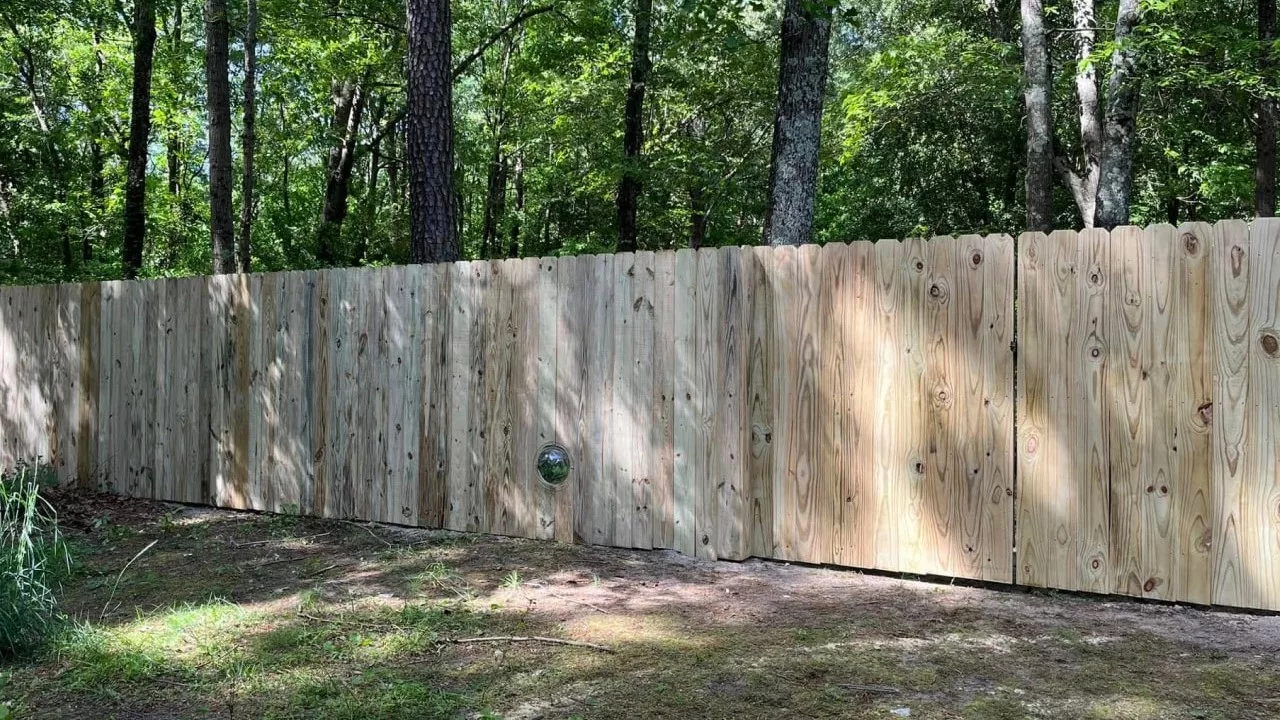
BloggerBorneo.com – Reliable local fence company understand how Virginia’s humid subtropical climate affects different materials, and that knowledge makes all the difference.
With 43 inches of annual rainfall, freeze-thaw cycles, and intense summer heat, Chester’s climate demands smart material choices. Let’s break down how wood, vinyl, and metal fencing perform in our unique weather conditions.
Understanding Chester’s Weather Challenges
Virginia’s climate throws everything at your fence. Summer temperatures regularly hit the upper 80s with crushing humidity that accelerates material breakdown.
Winter brings freeze-thaw cycles that cause soil expansion and put serious stress on fence posts.
Add in our clay-rich soils that retain moisture around foundations, and you’ve got a recipe for fence failure if you choose the wrong material.
The constant moisture exposure creates perfect conditions for mold, mildew, and rot. UV radiation from intense summer sun can make materials brittle and faded.
These aren’t just minor inconveniences—they’re expensive problems that proper material selection can prevent.
Wood Fencing: Classic but High-Maintenance
Wood remains popular for good reason. It’s affordable upfront, looks natural, and offers complete customization. With proper installation and maintenance, wood fences last 15-20 years in Virginia’s climate.
But here’s the reality: wood demands attention. Pressure-treated pine typically lasts 10-15 years, while cedar can push 30 years thanks to its natural oils and tannins.
The key is proper installation with posts set below the 18-24 inch frost line and concrete footings that don’t let posts touch the ground.
Virginia’s humidity creates constant expansion and contraction, loosening boards and hardware. Moisture absorption leads to warping, rotting, and that unsightly mold growth.
Summer UV damage causes fading and makes wood brittle. Don’t forget about termites and carpenter ants—they love Virginia’s humid conditions.
Wood requires annual inspections for damage and loose hardware. You’ll need to clean and stain every 2-3 years, immediately repair damaged boards, and keep vegetation trimmed for proper airflow.
Choose pressure-treated lumber or naturally resistant cedar, and invest in quality stain and sealant for UV and moisture protection.
Vinyl Fencing: The Low-Maintenance Winner
Vinyl handles Virginia weather like a champ. It won’t warp, rot, or crack during freeze-thaw cycles, and it’s five times stronger than wood for handling ice and snow loads.
Quality vinyl includes UV-resistant formulations that prevent discoloration, giving you 25+ years of life with minimal maintenance.
The climate advantages are impressive. Vinyl doesn’t expand and contract like wood, its waterproof surface prevents mold and mildew, and you’ll never paint, stain, or seal again. Virginia’s humidity simply doesn’t affect it.
The downsides? Vinyl can become brittle during extreme cold snaps, and lower-quality options may discolor under intense sun. Repairs usually mean replacing entire panels rather than fixing individual boards.
For Chester installations, choose earth-tone colors like tan, gray, or chestnut over plain white. Look for high-quality PVC formulations with UV inhibitors, and make sure your contractor installs with adequate expansion gaps.
Metal Fencing: Built to Last
Metal fencing offers superior weather performance. Steel and aluminum don’t expand and contract like other materials, they resist freeze-thaw cycles beautifully, and they handle brutal winter conditions without damage. Depending on type and coating, metal fences last 20-50+ years.
Aluminum is lightweight and rust-resistant—perfect for residential use. Steel provides maximum strength with powder-coated finishes for rust prevention. Wrought iron offers traditional aesthetics but requires more maintenance.
In Virginia’s humid climate, galvanized or powder-coated finishes are non-negotiable. Proper drainage around posts prevents rust at ground level, and regular inspection catches coating damage before it becomes expensive.
Metal requires annual inspection for rust or coating damage and occasional touch-up painting. Still, maintenance is much lower than wood.
The Real Comparison
When you compare materials side-by-side, the differences become clear:
Wood offers 15-20 years of life with moderate weather resistance but high maintenance needs. It’s the most affordable upfront but costs more over time.
Vinyl delivers 25+ years with excellent weather resistance and very low maintenance. Higher initial cost but better long-term value.
Metal provides 20-50+ years with excellent weather resistance and low-to-moderate maintenance. Premium pricing but exceptional durability.
For Chester’s historic neighborhoods, cedar wood or wrought iron maintains authenticity. Suburban developments benefit from vinyl’s low maintenance.
Rural properties do well with split-rail wood or steel for durability. Pool areas need aluminum for safety and longevity.

Making the Right Choice
Your budget matters, but so does your lifestyle. Budget-conscious homeowners can succeed with pressure-treated pine and proper maintenance.
Mid-range budgets work well with quality vinyl and good warranties. Premium budgets allow cedar wood or powder-coated steel.
Remember that Virginia’s climate makes professional installation worth every penny. Proper drainage isn’t optional—it’s required for any fence to reach its expected lifespan.
When hiring contractors, look for local experience and avoid anyone who doesn’t understand Chester’s soil conditions and frost line requirements.
Seasonal Maintenance Matters
Spring calls for thorough inspection and cleaning. Summer means UV protection and vegetation management. Fall requires winter preparation steps. Winter demands careful snow removal and damage prevention.
The bottom line? Virginia’s weather doesn’t give your fence a break, so choose materials that can handle the challenge.
Whether you go with traditional wood, low-maintenance vinyl, or durable metal, proper installation and appropriate maintenance will protect your investment for decades.
Companies like Dubon Fencing & Polish Concrete LLC bring 15+ years of local experience understanding Chester’s unique challenges—and that expertise shows in every installation.
Your fence is only as good as the materials you choose and the contractor who installs it. (DW)



